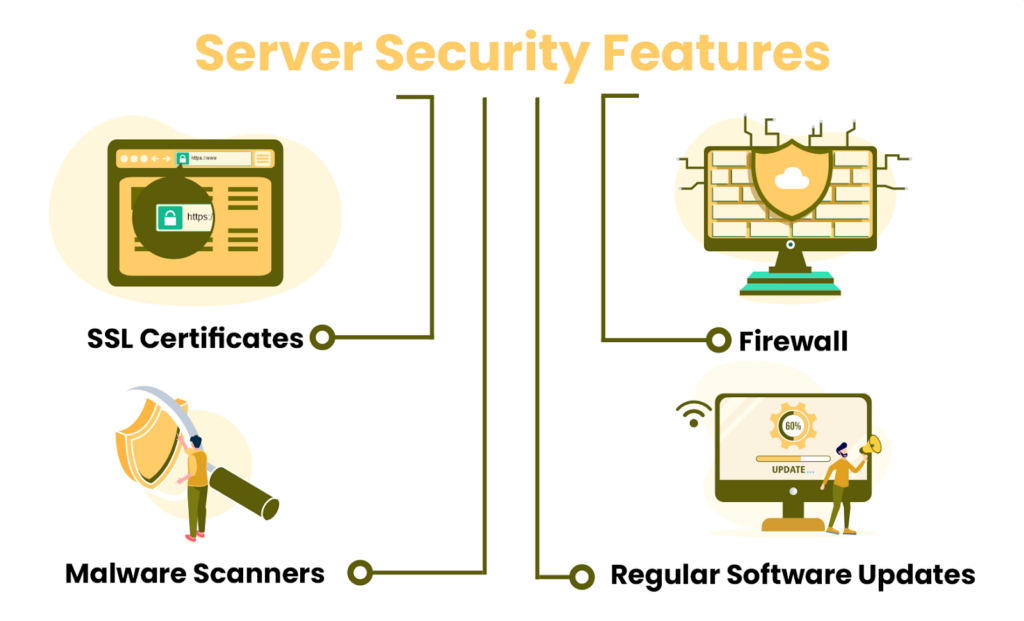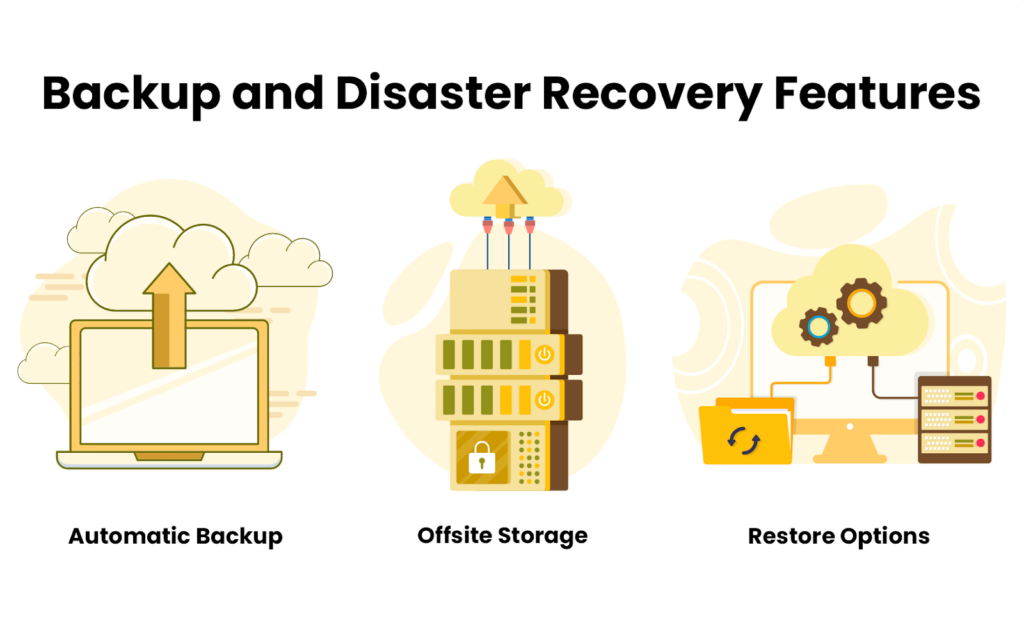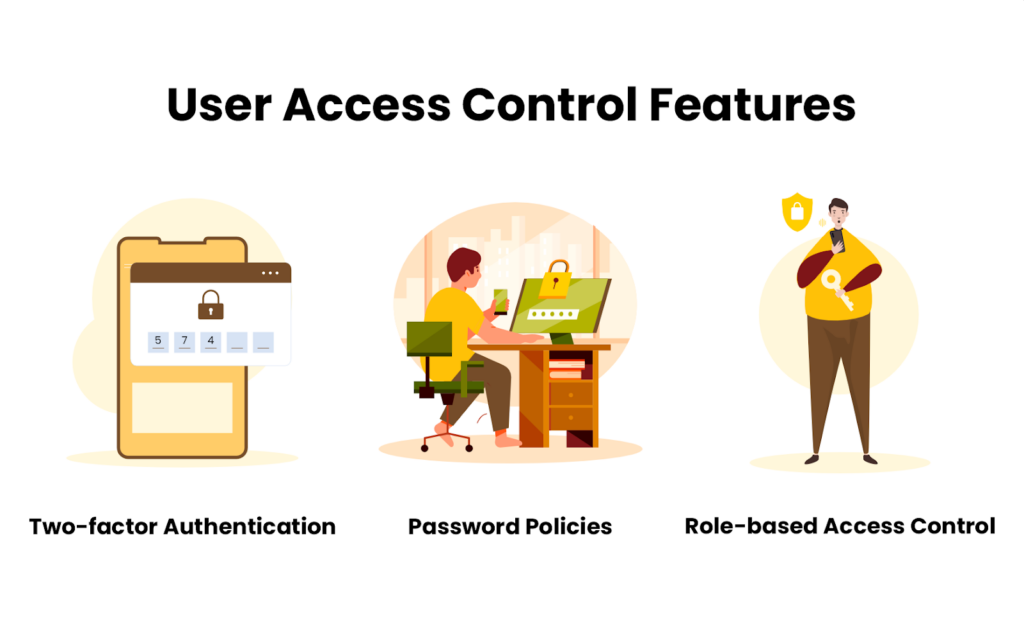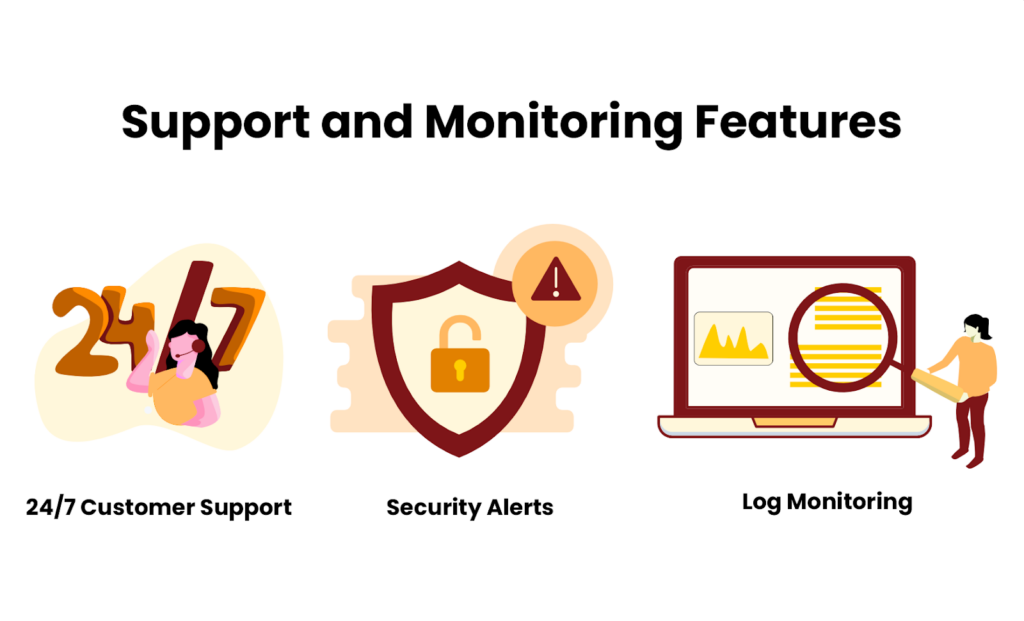Web hosting is an essential element for any website. Web hosting is a vital service that allows individuals and businesses to store their website files and make them accessible to online visitors. Choosing the wrong web hosting provider can have serious consequences. In today’s digital landscape, website security is of the utmost significance due to the rise of cybercrime. Choosing a trustworthy web hosting provider that prioritizes security is of utmost importance.
Your website will be vulnerable to hacking if you choose an unsafe web hosting provider. Attacks like hacking attempts and virus breakouts may lead to the loss of crucial data and damage your online reputation. Poor web hosting is the leading cause of hacked websites, according to data provided by Google.
Your business will be safer if you choose a web hosting provider that places a premium on security. It might be difficult to choose a trustworthy web host, though, due to the abundance of options available. So that you may make a sound decision, we have written this post to review some of the most important security measures to consider, such as SSL certificates, firewalls, password rules, frequent backups, etc.
Top Security Features to Look for in a Web Hosting Provider – What Are They?
Let’s break down the specific safety measures you should demand from your web hosting provider.
Server Security Features

One of the most important components of any web hosting service is the safety of its servers. Any security issues with the server might devastate your online presence. Attempts to hack the site, virus outbreaks, and data breaches are just a few of the dangers that websites face. Therefore, it is crucial to choose a web host that has robust server security measures in place.
SSL Certificates
SSL certificates are a crucial part of any server’s security system. Data transmission between the server and the visitor’s browser is encrypted using the SSL (Secure Sockets Layer) protocol. E-commerce websites that send sensitive client information, such credit card numbers, need SSL certificates.
Firewall
A firewall is another essential piece of security feature. A firewall is a security mechanism that keeps an eye on and manages the server’s incoming and outgoing connections. It stops hackers from accessing your website by blocking their efforts to do so. Finding a web hosting provider that has a good firewall installed might be an added layer of protection from hackers.
Malware Scanners
Protecting servers also involves using malware scanners. Malware, or “malicious software,” is software designed to do damage to your website. Your website’s safety will be ensured if your web hosting provider runs malware scans regularly and fixes any issues immediately.
Regular Software Updates
It is also important to keep the server’s software up-to-date. Keeping your server’s software up to date is crucial in preventing any security breaches. If your web hosting provider delivers regular software updates ensures the safety and security of your website.
Make sure the web hosting provider you choose has rigorous protections in place for their servers. With this method, your website will be protected from any possible threats.
Backup and Disaster Recovery Features

Features for backing up data and recovering from disasters are just as important as those for keeping a server secure. Websites may be safeguarded against data loss and kept online during an emergency with the aid of backup and disaster recovery capabilities. Having reliable backup and disaster recovery capabilities is more crucial than ever in light of the growing prevalence of online attacks and natural disasters.
Automatic Backup
Automatic backups are a must-have for any web hosting provider you are choosing. Regular automatic backups protect website data from being lost during a hack or natural disaster. Automatic backups relieve the responsibility of frequent data backups on website owners.
Offsite Storage
Another aspect you should be on the lookout for is offsite storage. When data for a website is backed up and kept in a place other than the server, this is called “offsite storage”. This safeguards the information in the case of a server-affecting calamity, such as a fire or flood. Website owners may have peace of mind knowing that their data is secure while stored off-site.
Restore Options
Options to restore data after a backup or recovery are also crucial. In the case of a hack or other disaster, site owners may use the restoration options to return their site to a former working condition. Website owners may swiftly recover their sites and reduce downtime by using restore options.
Make sure your prospective web hosting provider has reliable backup and disaster recovery options. As the number of cyberattacks and natural disasters continues to climb, it is more crucial than ever to have a solid backup and disaster recovery strategy in place.
User Access Control Features

In web hosting, user access control capabilities are crucial for preventing unauthorized website access and protecting confidential data. Due to the increasing sophistication of cyber-attacks, it is crucial to implement strong user access control measures to guarantee that only authorized users can access the website.
Two-factor Authentication
When choosing a web hosting provider, two-factor authentication should be among your top priorities for controlling user access. With two-factor authentication, users must provide two pieces of information to get access to the service. A password and a temporary code delivered to the user’s phone may be used for this purpose. Two-factor authentication greatly minimizes the possibility of unauthorized access to the website by demanding two different forms of identity.
Password Policies
Another crucial part of user access control is the web hosting provider’s password policy. Strong, unique passwords often changed are a requirement of most password rules. Password rules may mandate a minimum length, a minimum number of characters, and a minimum number of special characters for each password. Web hosts may protect their customers from hacking by imposing strict password restrictions.
Role-based Access Control
Another essential user access control feature to look for in web hosting providers is role-based access. Website owners can customize a user’s experience depending on their specific job with the help of role-based access control. For example, a website administrator may have access to all of the site’s features, whereas a content editor may have access to simply the content editing interface. Users may only see content that pertains to their specific roles on a website by implementing role-based access restrictions.
Support and Monitoring Features

For websites to remain safe and secure over time, web hosting providers must offer support and monitoring options. It’s possible that website owners won’t be aware of security issues or won’t have the means to respond effectively if they don’t have access to good support and monitoring.
24/7 Customer Support
Access to customer support representatives at all hours of the day and night is a must for any web hosting provider you are considering. When website owners have access to round-the-clock customer assistance, they may obtain answers to their security questions whenever they arise. Help with site hosting concerns, software updates, and managing security risks are all examples.
Security Alerts
In addition to technical help and uptime monitoring, a reliable web hosting provider should also give security warnings. When malicious activity is identified, security alerts warn the website’s administrators. Indicators of this kind include warnings about malicious software, odd behaviour, and other potential security risks. Site administrators who are alerted to potential security issues have a better chance of mitigating such risks before they do significant harm.
Log Monitoring
You should also ensure that your web host offers log monitoring as part of their support and monitoring services. To discover security issues, log monitoring entails keeping tabs on website activities and analyzing logs. Website administrators may spot abnormal activity or behaviour that may pose a security risk by checking the logs. As a result, site administrators will be better equipped to take preventative measures against security vulnerabilities and cyber threats.
Given the growing complexity and frequency of cyber assaults, it is more crucial than ever to have sufficient assistance and monitoring in place to guard against data breaches and safeguard private information.
How WebSpaceKit Offers Security Measures?
Security is of the highest importance when selecting a web host. WebSpaceKit is a web hosting provider that prioritizes the safety and security of its clients’ websites by providing a wide variety of protection options.
- WebSpaceKit’s free SSL (Secure Sockets Layer) certificates are an essential security element. Secure Sockets Layer certificates encrypt information sent between a website and its users, such as login passwords and financial information, to keep it safe from exploitation. WebSpaceKit assures the safety of its clients’ websites and the privacy of its users by giving free SSL certificates.
- WebSpaceKit also has built-in malware detection automation, which is a major extra layer of security. This feature conducts regular scans of websites for malware and other security threats and alerts site managers to any issues found. By taking proactive measures, we may boost users’ faith that the websites are safe from malware and other risks.
- WebSpaceKit offers an additional degree of security known as Domain Privacy Protection. This feature helps to keep website owners safe from spammers such as telemarketers.
- WebSpaceKit ensures the safety of its customers’ websites by making daily backups. In the event of data loss or a security breach, web administrators may swiftly and easily restore their sites to an earlier version, minimizing the downtime their sites experience while preserving their data.
Overall, WebSpaceKit’s security features make it such that its clients’ websites are safe and secure. Free SSL certificates, automated malware scanning, domain privacy protection, and daily backups are just a few of the security measures offered by Webspacekit to help keep its clients’ websites safe from hackers and other online dangers.
Also, explore:
- Affordable Web Hosting in India for Small Business Websites
- 5 Best Web Hosting for eCommerce Website in 2023
- Why Blogging is Important for Your Business
- Why SEO is Important for Your Business
- 7 Best WordPress Hosting Providers in India – A Detailed Comparison
Conclusion
Overall, selecting a reliable web hosting provider is crucial to the safety of your online presence. If viruses, cyberattacks, or data breaches damage a website’s security, it might be exceedingly expensive for consumers and companies alike.
Your website’s security is of the utmost importance, so be sure the web host you choose with has state-of-the-art protections. Protections for servers include things like SSL certificates, firewalls, and virus scanners. Safeguards against data loss include offsite storage and frequent backups. It is possible to restrict user access by either password policies or two-factor authentication. Tasks in support and monitoring involve everything from checking logs to giving around-the-clock help to consumers.
When these safeguards are implemented, hackers, data thieves, and other online intruders have fewer possibilities to compromise a website. Keep in mind that ensuring your website’s security is an ongoing process that demands frequent attention and adjustments.
FAQs on Top Security Features to Look for in a Web Hosting Provider
Why is it crucial to select a website hosting provider with robust security features?
When it comes to hacking, malware, and phishing harms, having a safe web hosting provider may be invaluable. Selecting a host that takes security seriously is another good way to guarantee the uptime and optimal performance of your website.
What are the most typical threats to a website’s safety?
Websites confront a wide variety of security threats, including hacking, DDoS assaults, malware infections, and data breaches. Potential outcomes of these threats include data theft, website outages, and damaged brand credibility.
Why do SSL certificates help protect websites?
SSL certificates encrypt information sent between a website and its users, making it more difficult for hackers to access or steal. They also use a padlock symbol in the browser’s address bar to let users know they’re visiting a safe page.
Why is it important to use two-factor authentication for website security, and how does it work?
To log in to a website using two-factor authentication, users must supply two pieces of information (such as a password and a code delivered to their phone). This aids in securing the website and its data from intrusion.
Does WebSpaceKit provide safety features?
Free SSL certificates, malware scanners, domain privacy, daily backups, and more are just some of the security features offered by WebSpaceKit to ensure the safety of websites hosted on their platform.
Add a Comment
Leave a Comment